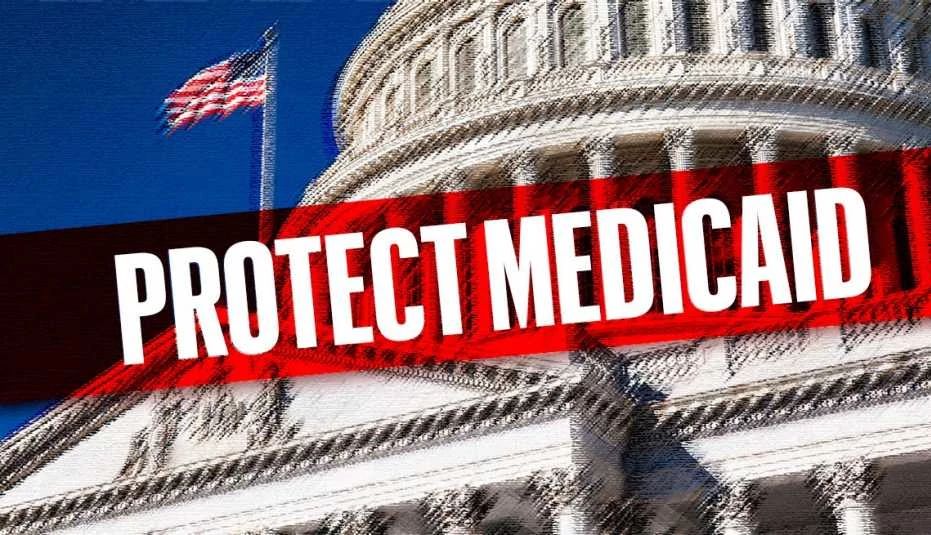In the past 100 days, the S&P 500 has declined by approximately 8.5%, the Dow Jones by 8.9%, and the NASDAQ by 12%, while egg prices have skyrocketed by 25%. Consumer confidence is diminishing, and discussions about a potential government-induced economic recession are increasingly common. Our crucial trade and national security relationships are under strain, and fundamental American values—such as due process and respect for the separation of powers—are facing significant challenges. Furthermore, anxiety and fear are prevalent within Latino communities. Amid these compounding pressures, it is both economically reckless and morally indefensible that Congress would now turn its attention to slashing Medicaid—a program that protects more than 70 million Americans from precisely the kind of hardship that defines our current moment.

As the debate over the federal budget intensifies, one familiar and misguided proposal has resurfaced: deep cuts to Medicaid. Some in Congress suggest that reducing federal Medicaid funding is a responsible step toward fiscal balance. But this approach is not only shortsighted—it’s harmful, economically inefficient, and morally indefensible.
House Republicans have recently advanced a set of proposals that would fundamentally restructure Medicaid in the name of fiscal restraint—but the true aim appears clear: to pay for massive tax cuts for the wealthiest Americans. Among these proposals is a plan to impose per capita spending caps on Medicaid, replacing the current open-ended federal matching model with rigid allotments that would not account for rising health care costs or unexpected surges in enrollment during public health crises. This shift would force states to either restrict eligibility or reduce services to make ends meet.
Another proposal includes instituting strict work requirements for able-bodied adults aged 19 to 55 without dependents—a policy that, according to nonpartisan analyses, could result in over 1.5 million people losing coverage. Simultaneously, Republican lawmakers are pushing to roll back Medicaid expansion under the Affordable Care Act, potentially stripping coverage from more than 20 million low-income Americans.
Altogether, these changes represent nearly $880 billion in potential Medicaid cuts over the next decade. That money, far from closing any deficit in a balanced manner, is being reallocated to sustain permanent tax cuts for corporations and the ultra-wealthy—reinforcing a backward budgetary logic that punishes the vulnerable to reward the powerful.
Medicaid is not just a line item on a budget spreadsheet. It is the lifeline for more than 70 million Americans, including low-income families, children, pregnant women, seniors in nursing homes, and people with disabilities. For millions, Medicaid is the difference between access to essential care and catastrophic health and financial outcomes.
The real human cost of these proposed cuts cannot be overstated, particularly those targeting Medicaid expansion in several states. Virginia offers an instructive example. Since its expansion in 2019, over 700,000 Virginians have enrolled, dramatically reducing the uninsured rate across the state and strengthening rural hospitals that were on the brink of closure. The case of Virginia underscores that expansion is not only feasible, but transformative—socially and fiscally.
Even from a fiscal perspective, Medicaid is far from the budgetary black hole its critics suggest. It is one of the most efficient public health insurance programs, with lower administrative costs than private insurance and a strong return on investment in terms of health outcomes, workforce participation, and reduced uncompensated care. Moreover, Medicaid spending growth has remained modest relative to private health care spending.
Instead of gutting the program, we should focus on practical, proven alternatives:
• Expanding preventive care and chronic disease management to avoid costly emergency care.
• Negotiating better prescription drug prices and increasing the use of generics.
• Cracking down on fraud and abuse through smarter oversight and eligibility systems.
• Shifting more care to home and community settings rather than institutional facilities.
• Investing in social determinants of health—like housing and nutrition—that drive long-term costs.
There are also revenue-side solutions: public health surcharges on tobacco or sugary beverages, provider assessments that draw down federal funds, or targeted reallocations within the broader tax system. None of these require sacrificing the health and dignity of millions.
To suggest that the path to fiscal responsibility must begin by undermining Medicaid is a false choice—and a dangerous one. If we are serious about health, equity, and economic stability, we must protect and strengthen Medicaid, not weaken it.
Balancing the federal budget should not come at the expense of the most vulnerable among us. It’s time for Congress to reject cuts that would do just that—and to pursue smarter, fairer solutions that preserve our social contract. It is appalling that the Republican majority in Congress is considering these cuts to Medicaid just to finance the impact of their tax cuts to the wealthiest.
